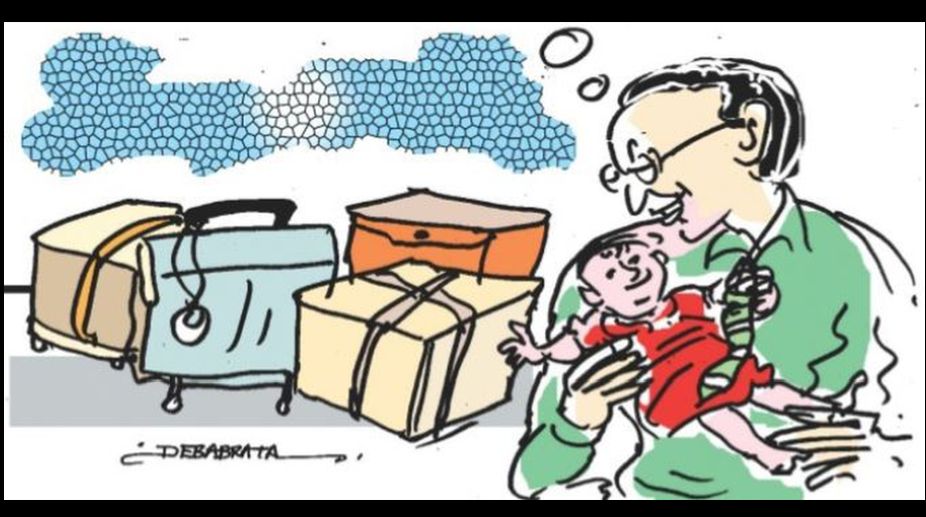Saving history through photographs
A photography exhibition, Bonedi Bari Photography Exhibition 2.0 started today at the Kolkata International Foundation in south Kolkata.

Illustration by Debarata Chakraborti
My great grandfather, whom I never saw, died in the house in which he was born in India. My grandfather moved just once, when he changed his home from the village to the metropolis of Kolkata.
My father moved nine times. The first when his uncles ejected his mother from the parental home, the second when he could not pay the rent, and the third when he could – by taking a job in another city.
Advertisement
Then he found a good job in Kolkata and returned, but the job entailed moves, and so we lived in four more houses. When he retired, he chose to live in two smaller houses.
Advertisement
I heard about the first four moves, but the latter five I experienced as his young son. These were traumatic experiences for me. I was perfectly content in each house and did not want to move.
Every time we moved, even if it was to a larger or better house, I longed for the earlier house and mourned its loss with endless nostalgia. Given the chance, I would have preferred to die in the house in which I was born, just like my great grandfather.
That was not to be. I worked for international groups, a UN entity and the diplomatic service, and acquired a spouse who too did overseas work. It was a big deal if I lived more than three years in the same house. If the country had a coup d’état or a civil war, I moved much faster.
I learned to accept the loss, not just of familiar bearings, but all that goes with it: neighbours, friends, grocers, barbers, even street vendors and known taxi drivers.
I learned to live friendless and with strangers. But, while my houses changed, so did the world around it. The Web grew; email became common; we all started sending photos to friends and calling them across continents.
My children went to college in other countries, but they called me and wrote me. I could enjoy new friends and colleagues without losing my link with older acquaintances.
When my daughter graduated and threw her cap in the air, I could see the Pyramids at the back in a video. When I flew to Cuba I could Skype and tell her what I was seeing. The loss had become a little bearable.
Just the world? No, I have changed too. As I moved from house to house, city to city, and country to country, my food, my clothes, my habits, my whole point of view changed. I don’t think and feel the way I used to any more just as I don’t eat what I once ate happily.
Loves and hates, wars and riots, children and refugees, all have infinitely added to and enlarged my life. I would have been quite content, like my great grandfather, to have died in the house where I was born, in a tiny brick cottage in central India on a cloudy autumn morning (said my mother), but I am not unhappy that my children seem destined to live in many more than the thirty houses I have lived in.
The last time I saw my younger daughter, she handed me her four-month baby and said simply, “Hold her, dad.” I took the baby, marveled at her large, limpid eyes, and then kissed her plump cheeks and wondered what roads her now-tiny feet will traverse and if one will end some day at my home.
(The writer is a Washington-based international development advisor and had worked with the World Bank. He can be reached at mnandy@gmail.com)
Advertisement